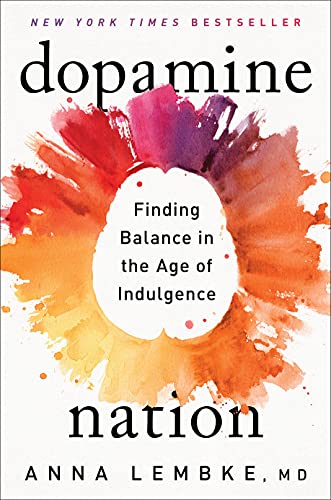Dopamine Nation - Dr. Anna Lembke
Started off the new year with the book Dopamine Nation by Dr.Anna Lembke. I came across Dr.Anna Lembke first in this episode of HubermanLab Podcast by Dr. Andrew Huberman(an excellent podcast by the way. A big trove of information related to neuroscience). This book is all about pleasure-pain balance.

With our lives filled with dopamine triggering sources that are so readily available for free all the time, we keep reacting to the stimuli from them with no break to reset. Overtime we tilt so much to the pleasure side that we no longer experience pleasure from them yet continue to seek them compulsively. It reminded me the old saying “Do not seek pleasure for its own sake” from Japanese philosopher Miyamoto Musashi. It leads to anhedonia. The things we do for pleasure can be come the sources of depression and anxiety if we don’t moderate its consumption. The worst part is that it is very difficult to be aware of that shift while we continue indulging compulsively in those high dopamine triggering activities.
My key takeaway from this book is the usage of behavioral tools to moderate our consumption and regain our natural homeostasis. Abstinence is a great tool to reset the pleasure-pain balance. However, it doesn’t happen overnight or in a week. However, in a few weeks (6-8 weeks in my own experience), our brain will adapt to new thought patterns and feelings and we will start to see things in a different perspective. It is totally possible for us to relapse after that period of abstinence, but it certainly won’t be in a compulsive way. Overtime, our brain will learn to reprogram itself and won’t crave for that pleasure which created that addiction. This goes true for all sorts of addiction: drugs, sex, pornography, substance, social media etc. Dr.Huberman’s podcast has some excellent episodes on this topic. Like abstinence, intermittent fasting and cold water therapy are some behavioral tools that we can readily and freely use to reset the pleasure-pain balance. It is easier said than done. Intermittent exposure to pain helps us to become less vulnerable to pain and more able to experience pleasure. It was intriguing to read the psychological and physiological benefits of practicing radical honesty.





Comments